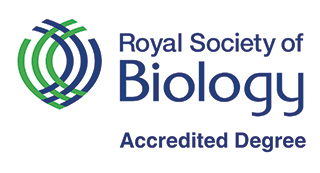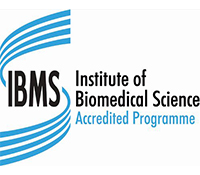BSc Microbiology with Professional Experience
-
UCAS code
C502 -
A level offer
ABB -
Year of entry
2027/28 See 2026/27 entry -
Course duration
Full Time: 4 Years
-
Year of entry
2027/28 See 2026/27 entry -
Course duration
Full Time: 4 Years
Expand your knowledge of some of the planet's most dominant life forms, and take part in research projects with a global impact on this BSc Microbiology with Professional Experience course.
As part of the UK's oldest microbiology department you can develop laboratory skills in purpose-built microbiology facilities and be taught by world-leading experts, with particular strengths in virology and bacteriology. 92% of School of Biological Sciences students said teaching staff are good at explaining things (National Student Survey 2025, 92.3% of responders).
Through the course, you will learn about the fundamental properties, genetics and physiology of diverse microbes. Options will then allow you to focus on areas that most interest you, including medical, environmental or food microbiology. You will also have the chance to carry out a year-long industrial placement or a paid vacation studentship in order to gain valuable work and research experience. You'll benefit from membership of the Society for General Microbiology and strong links with industry.
BSc Microbiology has a strong practical basis, and you will learn a wide variety of techniques such as microbial genetics, biochemistry and propagation. During your final year you will have the chance to spend three months working on an original research project of your choice. Recent projects have included the molecular engineering of viruses, and the mechanisms of bacterial pathogenicity and host colonisation.
Our £60m Health and Life Sciences building is the home of the School of Biological Sciences. It offers state-of-the-art research and teaching laboratories, seminar rooms, and plenty of study and social space, including a café. The building also houses the Cole Museum of Zoology. The collection, featuring over 3,500 natural history specimens, provides a fantastic resource for biological scientists and the wider community.
For more information, please visit the School of Biological Sciences website.
Placement
You will carry out a year-long industrial placement between your second and final year. Student in previous years have worked at Public Health England’s Porton Down and Colindale laboratories, GSK, AstraZeneca and Covance. You can also choose to spend a year abroad, typically carrying out research in an academic laboratory.
You will be able to undertake paid vacation studentships funded by organisations such as the Wellcome Trust and the Society for General Microbiology. These can take place over six weeks during the summer break, or be carried out part-time over a longer period. During studentships you will typically work on a set project and benefit from valuable training in techniques, experimental design and the interpretation of data.
Additionally, you can take a work placement module.
Our department has a dedicated academic in charge of placements, who can provide you with advice and support.
For more information about securing and completing a placement for your placement year, please visit our Important Information page.



